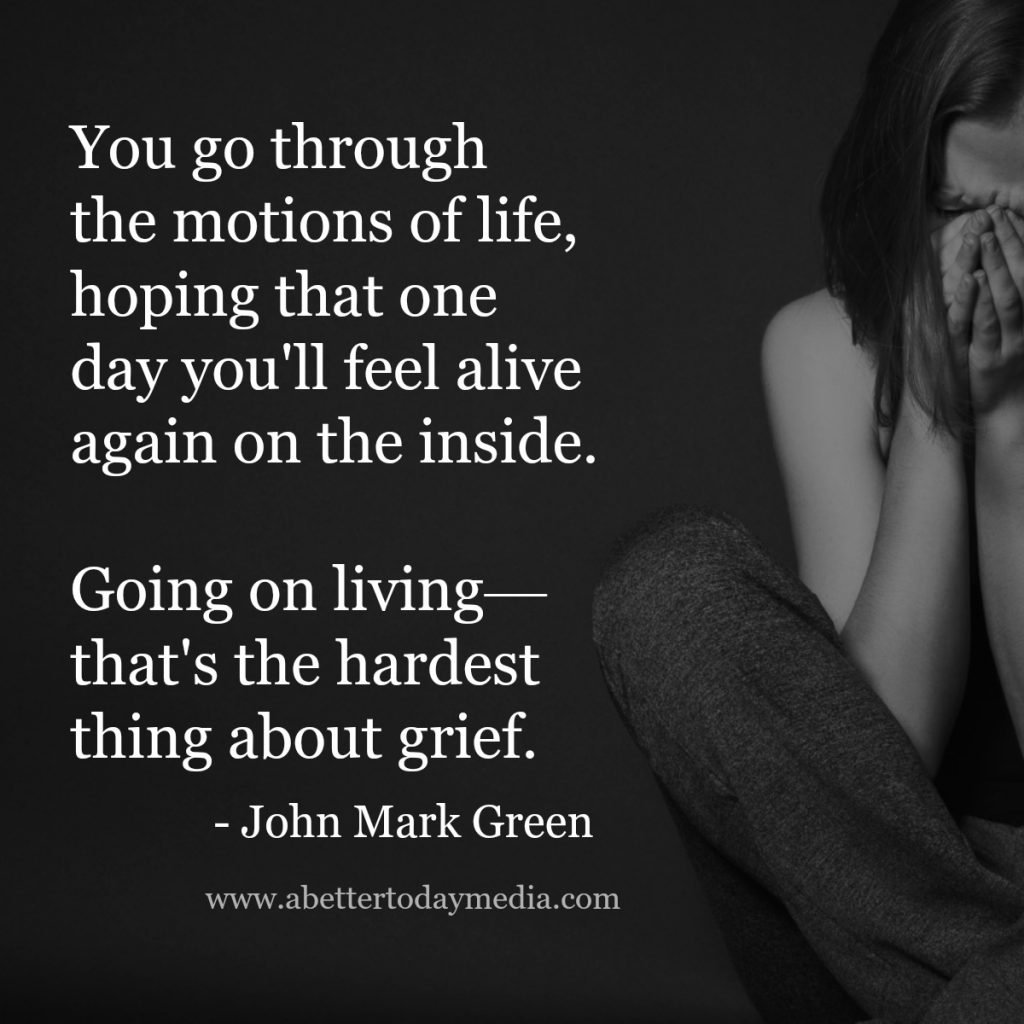Life is relentless, and that makes grieving hard.
The world keeps on spinning, and after every sleepless night, the sun still rises. The show must go on. There is no pause button to allow you to step off the treadmill of life’s demands, catch your breath, and process your pain.
There are people to interact with, for whom you must paste on a smile or at least hold back the tears. Trying to act as if things are somewhat normal when your world has fallen apart is exhausting.
Days pass in a blur of slow-motion pain. Grief is an invisible, interior wound. There are no crutches, casts, or bandages to let people know that you are trying to heal. The light missing from your eyes, and the tears that suddenly spill out at inopportune moments—these are the things which betray grief’s presence.
People will say things they think are comforting because they feel like they have to say something and these things will often be hurtful because the shallow clichés reveal just how much they don’t get what you’re going through. Some recommend that you go talk to a Psychic Advisor which has been helpful for some but not for yourself.
Friends try to be supportive but eventually run out of patience. After a while, it becomes awkward for them to ask how you’re doing.
You can see the thing they want to know, in their eyes: “How long are you going to take to get back to normal?”
They don’t actually say it of course, but the question is hovering there, like a pesky fly buzzing inside their skull. And the worst thing is if they did ask you wouldn’t know how to answer.
You have no idea how you made it through yesterday, let alone how long it will take until this vise that’s slowly crushing your heart will relinquish its death-grip. You continue putting one foot in front of the other because that’s all you know how to do. You go through the motions of life, hoping that one day you’ll feel alive again on the inside.
Going on living—that’s the hardest thing about grief.




